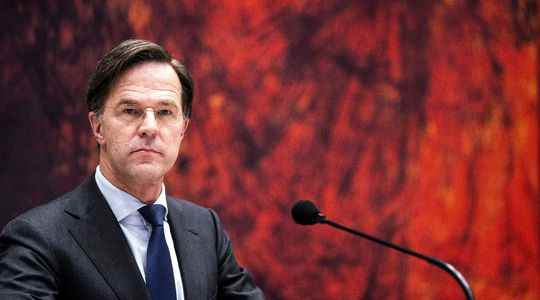He is not “a big fan of smartphones”. The Dutch Prime Minister, Mark Rutte, cultivates his image as a simple and frugal man by cycling around The Hague and refusing to submit to new technologies, in particular smartphones. But this image took a hit this week: a national newspaper suspects him of having deleted important messages from his Nokia that relate to the management of the Covid-19 pandemic.
A parliamentary debate took place on Thursday, May 19 to determine whether the law on archives has been respected. The Public Sector Information and Heritage Inspectorate then announced the opening of an investigation on the management of information at the Ministry of General Affairs, on the basis of the controversy over the SMS concerned.
- The Facts: Suspicions of Deleted Messages
In 2020, the daily From Volkskrant had launched legal proceedings to access the messages of Mark Rutte, in order to access government communications during the Covid-19 pandemic. The newspaper relied on a ruling from the previous year that SMS and WhatsApp messages were included in the Archives Act.
This law provides that certain government correspondence must be kept in order to be able to explain to the public – including members of parliament and journalists – why certain choices were made. But the newspaper said it was surprised to have only received messages from the Prime Minister to his staff and asked for more information. Between the end of 2019 and June 2020, the official sent only 41 messages related to the pandemic.
The Prime Minister defended himself on Wednesday, explaining that he had archived all the important messages and deleted the others, on an old mobile phone, to free up space. “I complied with the directives”, defended himself, in front of journalists, the one who is nicknamed “First Teflon” by the Dutch media because of his ability to survive scandals. He stressed that he had not broken the law on archiving, insisting that he had “never deliberately” hidden important matters by deleting messages. A lawyer representing the Dutch state for his part said that the head of government had carried out a “real-time archiving” and that there was no reason to suspect a crime.
The Prime Minister, “not a big fan of smartphones” in his words, explained that he kept his old model as part of his duties. The thousands of messages received by the head of government have, according to the latter, slowed down the device, which is why he began to delete some. Rutte’s press officers have meanwhile confirmed that he now has a smartphone.
- Why it matters: A lack of transparency on the pandemic
This explanation does not seem convincing. The 55-year-old head of government personally determined which messages were important enough to pass on to a government official for archiving, says De Volkskrant.
In a parliamentary debate on Thursday, a no-confidence motion was tabled by far-right leader Geert Wilders, without success, reports Politico. But opposition MPs are not giving up.
Independent MP Pieter Omtzigt was indignant, after the debate, learning of a new element concerning the controversy: for a year, a project and a budget provide for better storage of text messages in the ministry concerned. According to him, “each department had to present an action plan on the provision of information. And all this before June 1, 2021”. This plan, sent to the deputy after the debate, plans to save the messages and to buy software to do this, which was to be ready by 2022. He then denounces information delivered by the government “untimely, incomplete and incorrect”.
The controversy was echoed in the corridors of the Public Sector Information and Heritage Inspectorate, which announced that it was launching an investigation into the creation of archives in this area at the Ministry of General Affairs, the scope of which “will be determined more in detail. […] The Inspectorate cannot form an opinion on the basis of public declarations as to compliance with the law on archives. However, she currently sees reason enough to further explore how the Archives Act has been applied.”
- The context: loss of trust in government
“We have a Prime Minister who is undermining the foundations of democracy,” protested Pieter Omtzigt, quoted by Politico. Many MPs criticized the behavior of the Prime Minister, stressing that this “Nokiagate” scandal is indicative of a lack of openness and transparency in the government, continues the site of the European daily based in Brussels.
All this in a context of mistrust and loss of popularity for Mark Rutte. According to a survey Ipsos published at the end of April, the cabinet of the head of government enjoys the confidence of only one in three Dutch people (33%). And around half of the population (49%) rate the functioning of the government as (very) bad.
It must be said that the population rose up on several occasions against the anti-Covid restrictions during demonstrations which sometimes turned into a riot. Mark Rutte himself admitted “mistakes” in the management of the health crisis. “I did not succeed in convincing people enough of the basic measures”, he underlined at the end of December in Telegraaf. This controversy around the management of the pandemic should not restore its image with the Dutch people.
Especially since Mark Rutte was already forced to resign from his government a little over a year ago, following a scandal concerning childcare allowances, against a background of ethnic profiling.
